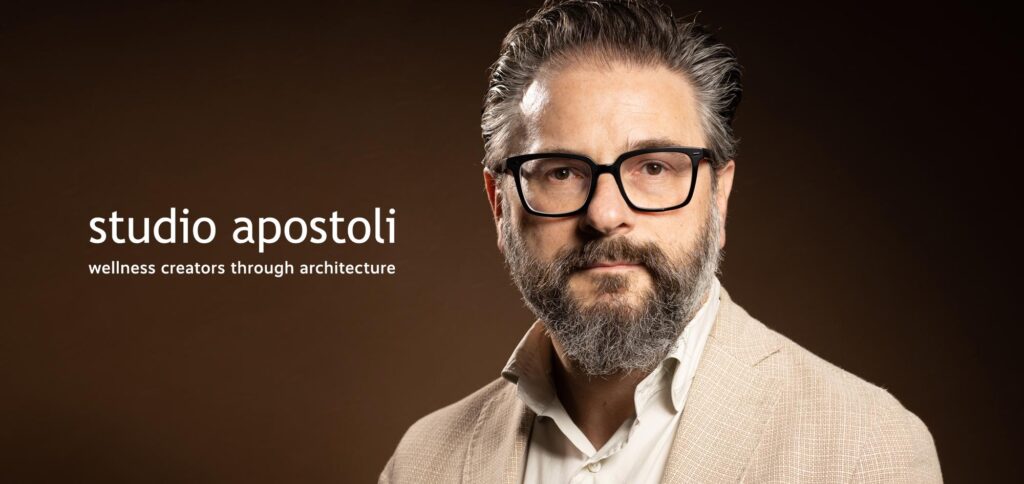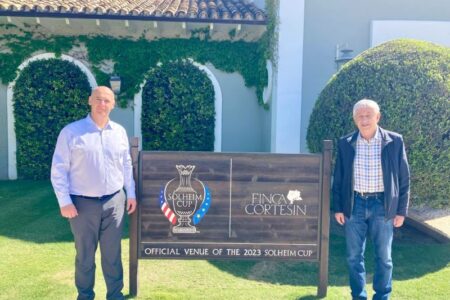In a world where wellness has become a universal language, but also in a market saturated with ephemeral trends, the voice of Alberto Apostoli resonates with unusual clarity. Architect, designer and visionary, his studio - one of the most prestigious on the planet - has redefined the way we understand the relationship between space, body and soul. From luxury spas and resorts to contemporary temples of balance, Apostoli has transformed design into a sensory and spiritual experience.
In this exclusive interviewshares his vision of how the concept of wellness will evolve over the next decade, the role of designers as agents of change and the importance of preserving human coherence in the face of technological immediacy.
Well-being as a dual phenomenon: technology and spirituality
For Apostoli, the future of wellness is unfolding in several simultaneous directions. On the one hand, technology - and especially artificial intelligence - will play an increasingly important role in the creation of personalised experiences, both in the design and management of spaces.
"Technology is now a very powerful asset throughout the wellness industry, and its impact will be enormous on both operations and design. However, the spiritual component will also increase. The human being is the essence of wellness and needs technology as much as nature and spirituality.."
This duality marks a paradigm shift. Well-being will no longer be understood as an act of total disconnection from the digital, but as an intelligent integration of technology with the most essential human rituals. Apostoli anticipates that the following will coexist two main currentsOne that is profoundly technological and the other that will reclaim the ritual, spiritual and natural dimension of life.
The role of the designer: beyond aesthetics
When asked whether designers create trends or simply interpret human needs, Apostoli is clear: only those who have a deep understanding of the wellness industry can truly influence its evolution.
"It is not just about design, but about understanding the relationship between design and operation, between the tangible and the spiritual. Architects and designers can inspire the whole industry only if they understand how wellness works in terms of product, marketing and experience.."
His approach breaks with the idea of the designer as a mere aesthetic executor. For him, wellness design is a holistic discipline where philosophy, psychology, biology and technology converge.
Le Fay and coherence as a core value
Apostoli cites the Le Fay Resort & SPA as one of the projects that best represents the direction contemporary wellness is taking.
"At Le Fay we managed to expand the wellness component throughout the entire facility. It is not a one-off experience, but a coherent experience, from start to finish. This consistency is, for me, the greatest value that a wellness project can offer.."
The architect stresses that the consistency -not showmanship- is the new luxury: the ability to create environments that maintain a constant feel-good narrative, without rupture or artifice.
The genius of place: when context guides design
Apostoli insists that no project can be detached from the cultural and natural environment in which it is born. Before drawing a line, his team takes the time to study the genius lociThe "spirit of the place" that the Romans considered essential.
"History, culture, religion and community must be studied. Nature and cultural heritage are determining factors. Only in this way can we transform a space into a unique experience.."
Wellness design, he explains, must be a dialogue between the global and the local, between the universality of wellness and the identity of each culture.

Trends versus human essence
In a market driven by fashion and immediacy, Apostoli remains true to a principle: human nature is constant. "We combine trends with what is essentially consistent with being human. Fashions change, but deep needs remain the same in any era or continent.."
True innovation, he says, lies in knowing how to balance the new with the timeless, the technological with the sensory, the functional with the spiritual.
His vision: towards a design that heals
Alberto Apostoli doesn't design buildings: he designs transformative experiences. His vision foresees a future where wellness will be at the core of a new architecture of the soul, where technology amplifies - not replaces - the human connection to nature and to oneself.
Its final message is an invitation to rethink welfare not as a trend, but as a process of reconnection and vital coherence. In this balance between body, spirit and environment, perhaps lies the true definition of contemporary luxury.






